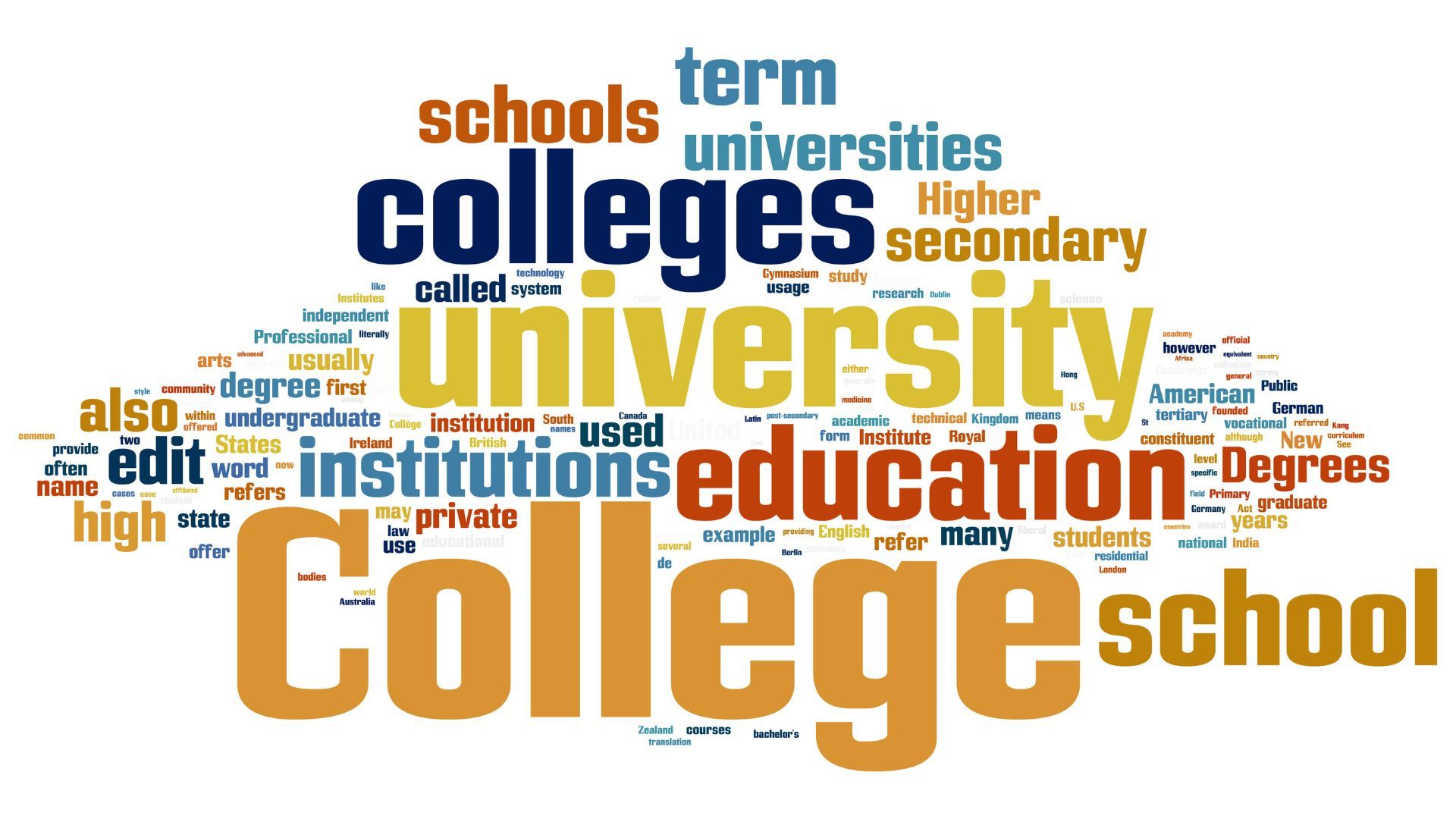Has higher ed lost its way? Time for a reality check

Higher education started with a clear mission: medieval universities like Bologna and Paris trained clergy and societal leaders, while early American colleges like Harvard and Yale prepared ministers and public servants with classical curricula designed to refine intellect and character among the elite.
Fast forward through centuries of evolution - the Renaissance expanded subjects to arts and sciences, the Morrill Act introduced practical fields like agriculture and technology, and the GI Bill democratized access for broader populations. Each shift had a clear purpose: responding to society's changing needs.
But somewhere along the way, that clarity got lost.
Colleges are still teaching the same curriculum they did a decade ago, acting like the world hasn't fundamentally changed.
It's time for some real talk: Higher education has completely lost the plot.
The great disconnect
Throughout history, higher education evolved with purpose. Medieval universities served the Church's needs. The Renaissance expanded knowledge horizons. The Industrial Age brought practical subjects like engineering and agriculture. The mid-20th century focused on democratization and workforce development.
Each transformation answered a clear question: What does society need right now?
Here's what's actually happening out there today. Fed Chair Jerome Powell just called out the "low hiring, low firing environment" that's making it nearly impossible for new grads to land jobs (Fortune 1). Companies are automating the tasks that used to go to fresh college graduates. And those "essential" AI skills we mentioned? In a world where bots can write an essay in seconds, the smartest move you can make is to sound human, yet colleges are still teaching students to write like robots (College MatchPoint 1).
The irony is mind-blowing. Students are paying record amounts for degrees that prepare them for a job market that no longer exists, while the actual skills employers want aren't even on the curriculum. For the first time in higher education's long history, institutions seem to have stopped asking what society actually needs.
College: a box-checking exercise
Remember when college was supposed to be about intellectual growth and preparing for life? Those days are long gone (Watermark Insights 1). What started as training for clergy evolved into preparing civic leaders, then expanded to foster critical thinking and innovation. But today's higher education has lost that evolutionary spirit.
Now it's become this weird performance where everyone's just trying to check the right boxes:
- Students are racing to establish nonprofits that will grow to "gargantuan proportions—only to be abandoned once they receive their acceptance letters"
- Parents are exploiting connections to get their kids published in prestigious journals
- Colleges are more focused on rankings and tuition revenue than actually teaching anything useful
- High schoolers are following "a set of rigid rules prescribed by their college counselors" and end up "lost once they emerge into the real world"
The absurdity has gotten so extreme that students and parents are finally seeing through it. Many are realizing that "authenticity during a student's teenage years is more important than forging a cookie-cutter admissions profile." As a result, talented students are increasingly skipping the Ivy League application process entirely, looking instead toward alternatives like vocational education at flagship state schools or non-traditional institutions.
The whole system has turned into a massive game of pretend, where nobody's actually learning the skills they need for real life. Unlike previous eras where education adapted to serve society's needs, today's system seems more focused on perpetuating itself. The institutions that were once "the epitome of intellectual inquiry and prestige, have lost the respect of the general public. And they have done this to themselves."
The skills gap nobody talks about
While colleges debate whether to ban ChatGPT, the real world has moved on. Entry-level job postings now casually list requirements like:
- "Experience with AI tools for data analysis and workflow optimization"
- "Ability to write scripts for marketing automation"
- "Proficiency in using LLMs for research and competitive intelligence"
And here's the kicker - college seniors are graduating with math and reading scores that are declining (EWA 1). We've got students who can't do basic research or think critically, trying to enter a job market that demands they be AI-fluent and adaptable.
Some AI leaders are predicting that "half of the entry level white collar workforce will be replaced by AI" in the next five years. But here's where it gets interesting, and where the real opportunity lies.
It's like training for a horse race when everyone else is driving Formula 1 cars.
What real preparation actually looks like
While everyone's panicking about AI taking jobs, OpenAI's Sam Altman sees it completely differently. When asked about graduating college in 2030, he said: "If I were twenty-two right now and graduating college, I would feel like the luckiest kid in all of history... there's never been a more amazing time to go create something totally new."
His point? You now have access to tools that can let you do what used to take teams of hundreds. The key is learning how to use these tools and coming up with great ideas. He believes it's "probably possible now to start a company that is a one person company that will go on to be worth like more than a billion dollars."
This is exactly what we've learned at Flintolabs: Real preparation isn't about checking boxes, it's about building actual skills through real experiences.
When our high schoolers build startup ideas using AI, they're not doing it for their college applications (though it certainly doesn't hurt). They're doing it because they're learning how to:
- Think critically about problems that matter to them
- Use technology as a tool to amplify their creativity, not replace it
- Handle failure and iterate when things don't work
- Communicate their ideas clearly and authentically
- Take ownership of something from start to finish
These aren't subjects you can test on. They're life skills that come from actually doing things, not just studying about them. And in a world where AI can handle the boring, repetitive work, these human skills become even more valuable.
The real purpose of education
Maybe it's time we remembered what education is actually supposed to do: prepare people for life, not just the next academic hurdle.
Altman makes another crucial point: "Young people are the best at adapting." While he worries about sixty-two-year-olds who don't want to retrain, he sees massive opportunity for the current generation. The problem is that colleges aren't preparing students to seize these opportunities—they're still preparing them for a world that's rapidly disappearing.
That means teaching students how to:
- Adapt to change (because the world won't stop evolving)
- Learn continuously (because no degree will ever be "enough")
- Think for themselves (not just regurgitate information)
- Create value (not just consume content)
- Handle uncertainty (because that's what real life is)
- Use AI as a superpower (not fear it as competition)
What sets a real essay apart from an AI-generated one is story (College MatchPoint 1). A chatbot can tell you that an activity builds character. Only you can show us what that looked like in your life. The same principle applies to education itself - real learning comes from real experiences, not theoretical knowledge.
Time for a course correction
Look, we're not saying college is useless. But we are saying that the current path - four years of expensive theoretical learning followed by scrambling to figure out how the real world works - is broken.
What if instead of optimizing for college admissions, we optimized for actual life preparation? What if high schoolers spent time building real things, solving real problems, and developing real skills alongside their academic work?
What if we stopped pretending that a degree automatically equals job readiness and started focusing on what actually makes someone valuable in the modern economy?
The bottom line
Higher education promised students a path to success, but somewhere along the way, it became more focused on its own survival than student success (Harvard Scholar 1). The result? A generation of graduates who are academically credentialed but practically unprepared.
The good news? Students don't have to wait for the system to fix itself. They can start building real skills, tackling real challenges, and preparing for the actual future, not the one colleges are still pretending exists.
Because at the end of the day, your ability to navigate the real world won't come from the name on your diploma. It'll come from the experiences you've had, the skills you've built, and the problems you've learned to solve.
And that journey can start a lot sooner than you think.
References
1. College MatchPoint. "Better Than a Bot: Turning Real Interests Into a Standout Essay." Collegematchpoint.com, collegematchpoint.com/better-than-a-bot-turning-real-interests-into-a-standout-essay.
2. EWA. "Issues/Higher-Ed/History-and-Background-College-Academics." Ewa.org, ewa.org/issues/higher-ed/history-and-background-college-academics.
3. Fortune. "Jerome Powell Says Gen Z Hiring Nightmare College Kids Hard Time." Fortune.com, 17 Sept. 2025, fortune.com/2025/09/17/jerome-powell-says-gen-z-hiring-nightmare-college-kids-hard-time.
4. Harvard Scholar. "Understanding the Purpose Aim Function of Higher Education." Scholar.harvard.edu, scholar.harvard.edu/files/roychan/files/chan_r._y._2016._understanding_the_purpose_aim_function_of_higher_education._jeppa_65_1-40.pdf.
5. Think AI Path. "Sam Altman Interview on Future of Work and College Graduates." Threads.com, @thinkaipath/post/DOc1qrKj4b3.
6. Various Sources. "Evolution of Higher Education from Medieval Universities to Modern Institutions." Multiple academic sources including Britannica, Harvard Scholar, Watermark Insights, and Times Higher Education covering the historical development of university purposes and missions.
7. Minding the Campus. "Ivies in Crisis." Mindingthecampus.org, 3 Jan. 2025, mindingthecampus.org/2025/01/03/ivies-in-crisis.
Comments (0)
No comments yet. Be the first to share your thoughts!


